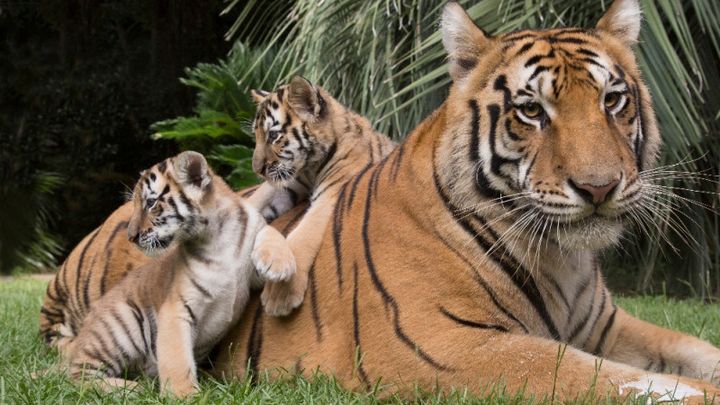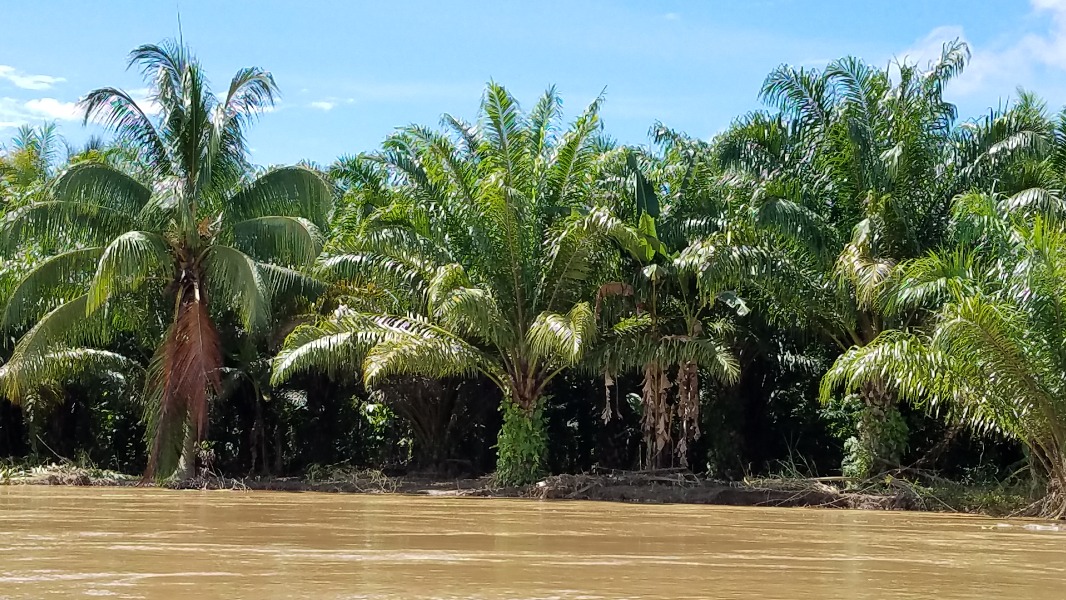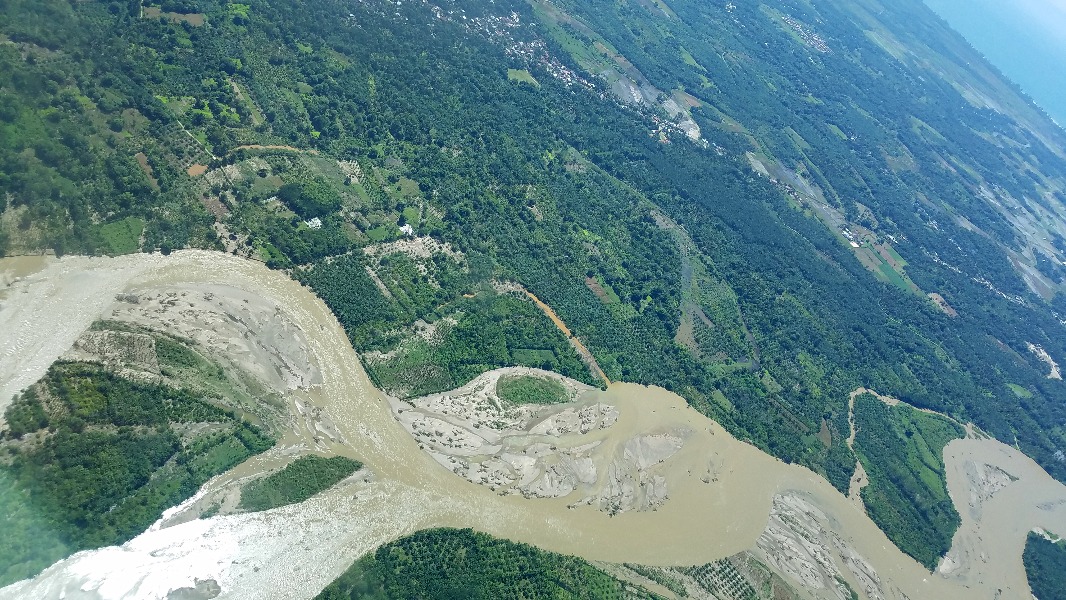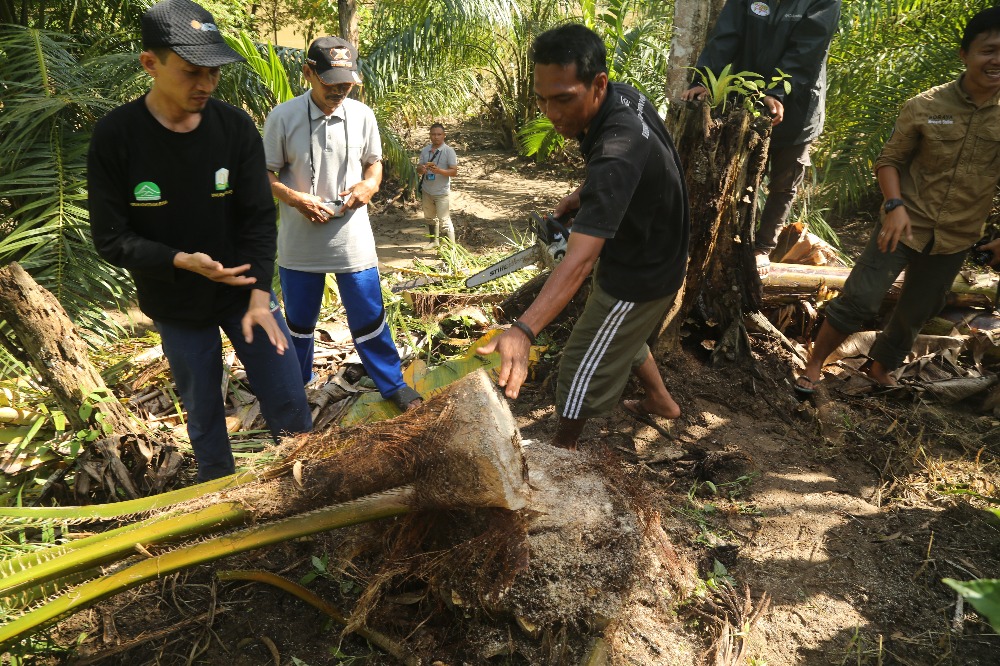
Saving Wild Tigers and Orangutans
The Apex Predators class at Coastal Carolina University is making the leap from learning about wildlife conservation to taking a proactive role. Students are raising money to help save tigers and orangutans in the Leuser ecosystem of Sumatra. CCU Apex Predators Class
CCU Apex Predators Class
Leuser is considered one of the world's few "biological hotspots". This is the only place in the world that is home to tigers, orangutans, rhinos, elephants, and bears. A primary threat to these animals is the diminishing habitats, primarily due to the expansion of palm oil plantations. Many small farms bordering this national forest have existed in relative harmony with the environment for as many as 100 years. These farms grew native fruits and plants and the farms were still inhabitable by much of the native wildlife. A wild orangutan mother and child.
A wild orangutan mother and child.
Due to an increased demand for palm oil, many farmers have resorted to cutting down native vegetation and planting an invasive African species of palm tree to produce palm oil. Because palm oil forests do not support a natural biodiversity of native species, the habitat for many of these endangered animals is rapidly dwindling. Most small palm oil farms exist along rivers and are only accessible by boat.
Most small palm oil farms exist along rivers and are only accessible by boat.
The CCU class is partnering with the Rare Species Fund (RSF) in the U.S. and the Forum Konservasi Leuser (FKL) in Sumatra to purchase riverside palm plantations from small time farmers and convert them back into sustainable wild habitat. Each of the target farms borders the Leuser ecosystem and will help expand habitat of many critically endangered species. The land will be put into the FKL trust and will be parmently protected from future development. A palm oil farm on a peninsula inside the Leuser ecosystem. It is legal only because it was cultivated before the area was officially protected.
A palm oil farm on a peninsula inside the Leuser ecosystem. It is legal only because it was cultivated before the area was officially protected.
Most farmers in the area are eager to participate in the program. Many find it difficult to compete with large corporate palm oil plantations. The farmers receive a very fair price for each hectare of land they sell and have the satisfaction that they are helping to conserve their local environment and cultural heritage. Palm oil farms near Leuser are not only reducing habitat for wildlife, they are causing massive erosion, flooding and poluting drinking water for most of the local population.
Palm oil farms near Leuser are not only reducing habitat for wildlife, they are causing massive erosion, flooding and poluting drinking water for most of the local population.
The ability to purchase the land is not the problem. Like many things in life, the opportunity is there, but funds are lacking.
Each hectare (2.47 acres) of critical land can be purchased for $1,500. Once placed in the FKL trust, the non-native palm trees will be cut down and the land will be replanted with native vegetation. Palm oil farms previously converted by FKL have become suitable wild habitat in just a few seasons. Native bird life inhabited these areas in less than 2 years, and monkeys were able to live in the environment in less than 5 years.  FKL converting a palm farm back into wild habitat.
FKL converting a palm farm back into wild habitat.
The real-world possibility to make a lasting impact on the environment and welfare of a large number of endangered species is at your finger-tips. The Coastal Carolina University Apex Predators class invites you to join our quest to turn our in class learning experience into a real-life conservation effort.
Our goal is to generate a minimum of $1500. This will permanently save one hectare of land. Of course, we would like to help FKL purchase more land if possible. The more you give, the more we are able to help, the brighter the future is for tigers, orangutans, and a whole host of threatened and endangered species who are having a tough time in our modern world.
One hundred percent of all funds will be transferred to FKL for the purchase and permanent protection of critical wildlife habitat is Leuser. Anyone who donates $20 or more will receive a comemmorative lapel pin of the Soraya Forest Research Station, recently built by the Rare Species Fund to support anti-poaching and conservation efforts in the Leuser ecosystem.
A video about Soraya Station and the Leuser ecosystem.
After the land is purchased, GPS coordinates will be emailed to all of our supporters. You will be able to find the location using Google Maps, and with time, satelite images will show how the land you have helped protect is returning to its natural wild state.
Lapel pins and shipping costs to you are being donated by the Rare Species Fund to ensure that 100% of all funds go to their intended purpose. Our Go Fund Me campaign will last through the end of April, 2018, to coincide with our academic semester. Please considered donating. Featured lapel pin. A gift for your generosity.
Featured lapel pin. A gift for your generosity.
Anything you can contribute will be greatly appreciated and put to good use. Every dollar puts us one step closer to helping find a permanent solution to protecting endangered Sumatran wildlife in their native habitat. We appreciate you taking the time to read about our project and ask that you please consider donating and forward this project on to anyone you think might be willing to help us reach our goal!
 Tigers are endangered and in threat of disappearing forever without immediate help.
Tigers are endangered and in threat of disappearing forever without immediate help.